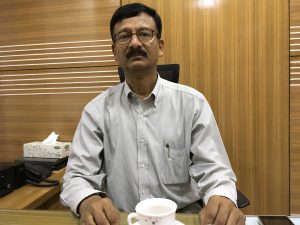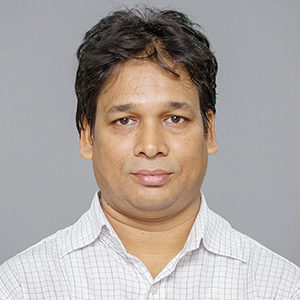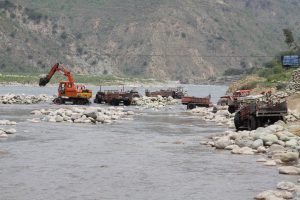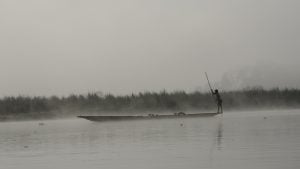The Foreign Secretary of Bangladesh between 2007 and 2009, Mohammed Touhid Hossain had earlier been the country’s Deputy High Commissioner in Kolkata, and is a well-known authority on Bangladesh-India relations. The former diplomat spoke to thethirdpole.net on the aftermath of Prime Minister Sheikh Hasina’s visit to New Delhi, especially about the failure to finalise the Teesta water sharing agreement between Bangladesh and India. Excerpts:
Kamran Reza Chowdhury (KRC): People in Bangladesh had hoped that the stalemate over the Teesta and other related issues would be resolved during the Prime Minister’s trip to New Delhi. But it did not happen. Why?
Mohammed Touhid Hossain (MTH): People’s expectations wwere uninformed. The informed people knew that nothing regarding waters would happen. We were hoping against hope. Everybody expected something to happen; let there be some oral agreement, at least. Or the two prime ministers could have announced a principle (of water sharing), asking their officials to settle (the) problem. But nothing like this happened. There was a little hope when the two premiers announced that they would settle the Teesta issue during their current tenure in office. But we have been listening to such pledges for the last eight years. Mamata Banerjee (the Chief Minister of West Bengal, the state through which the Teesta flows before entering Bangladesh) has now announced that there was no water in the Teesta.
See also Teesta has one-sixteenth of water needed
KRC: In addition to the Teesta, the two prime ministers asked officials to conclude discussions on sharing of common rivers such as Feni, Manu, Muhuri, Khowai, Gumti, Dharla and Dudhkumar. How do you see the sharing of waters of these rivers?
MTC: My opinion is no structure should be erected over the Dudhkumar because it should be allowed to fall into the Brahmaputra. What I can say on the Teesta is: water is there in the Teesta river. They have constructed a barrage (over the Teesta in India) in Gazoldoba and took the (Teesta) flows to Mohananda and beyond through a canal. If you take a colour aerial photo of the greater Rangpur and Dinajpur regions in Bangladesh, you will see the region is drier than the areas just beyond the border. (Drawing a Bangladesh map in the air with his index finger) The Indian side is greener. This is because irrigation is there, not here.
It (the Teesta) is an international river. It is true that the Teesta cannot provide adequate waters during the dry season; it comes down to around 5,000 cusec (cubic feet per second). But the principle has to be that the river belongs to two countries (India and Bangladesh). The two countries will share their hardships. This inadequate water should be divided between the two countries. It is in no way acceptable that I will take the entire flow when the flow is least. No principle allows this approach. Let us take measure to increase the flow of the Teesta. Have some structures upstream so that you store water in the Teesta during the wet season so that the flow in the dry season can be augmented and can be divided between the two countries.
The basic agreement made in the negotiated draft of the Teesta treaty in 2011 was that a certain part of the water has to be released for the health of the river itself. It will be allowed to merge with the waters of the Brahmaputra. This agreement is vital because a river is a living thing. We can release 20% of water for the health of the river, and we can then share the remaining 80% among ourselves. You (India) are a big country; ok you take 55% and give us 45% waters. Water must be released for us.

KRC: Given the situation, will the solution to the Bangladesh’s water problems lie with Indian assurances and its domestic political equations?
MTH: Hitherto our experience says so. This is because we are yet to move for augmentation of the flows of any of the common rivers. I am worried that 20 years has elapsed since the signing of the 30-year Ganga water sharing treaty. But we are yet to utilise the waters that came into Bangladesh as a result of the Ganga water treaty. The water was not supposed to be mixed with the flow of the Jamuna (as the Brahmaputra is called in Bangladesh). We desired that the water coming from the Ganga would protect the Sundarbans, resuscitate the Gorai-Modhumoti river system and there would be no scarcity of waters in the Bheramara plant (Ganga-Kobadak irrigation project).
To meet these objectives, we must construct a barrage over the Padma (the main distributary of the Ganga, which flows through Bangladesh) river. Without a barrage, diversion of water to the Gorai-Modhumoti channel is not possible, as the riverbed of the Gorai is higher than the Padma.
KRC: The Ganga barrage was an issue the two prime ministers discussed.
MTH: The Ganga barrage project has been abandoned. This means that the proposal for constructing the Ganga barrage in Pangsha, Rajbari was made, I suppose, without any proper study. If we cannot complete a proper study in the last 20 years, when would we construct the barrage?
We are supposed to start a negotiation on extension of the Ganga water sharing treaty in 2024 or 2025. Then the Indian position could be that you did not utilise the waters you got. My opinion is the Ganga barrage was more important than the Padma Bridge. Without the Ganga barrage we cannot assert our position on the common rivers.
KRC: Prime Minister Sheikh Hasina is in favour of building the Ganga barrage jointly with India. Do you think Bangladesh should construct it on its own?
MTH: We have to be careful if India has some problems (with the Ganga barrage implementation in Bangladesh). India has created a problem for us (by constructing the Farakka barrage) to solve their problem. This does not justify that we would also create problem for India. We do not want this.
KRC: Bangladesh and India have an uncomfortable relationship over water sharing. Will this continue?
MTH: During the last 40-45 years, we have been able to temporarily resolve the problem of only one river, the Ganga. We have to expedite the speed of the negotiation. The problem will not be resolved in several generations at the current speed. We have so many rivers.
Bangladesh and India are such close neighbours that there will always be problems. Solutions must be thrashed out. We will have to continue our endeavour to solve the problems. Goodwill from two sides is a precondition. I believe that the two sides have goodwill. Sometimes political calculations, domestic political equations come to the fore. Resolving the problems would be easier if we could overcome these.
KRC: There is an idea that we have to increase our engagement with West Bengal to resolve the water crisis. What do you think?
MTH: Mamata Banerjee’s consideration is West Bengal only. She would not bother whether the Bangladesh-India relations was sweet or sour. She would propagate (sic) according to the desire of her electorate. I doubt that she would come forward to resolve our problem even if she feels that Bangladesh is entitled to get water. She knows that she had strong political opposition in West Bengal. She would do everything keeping the votes in mind.
KRC: There is a notion that Mamata Banerjee would not object to signing the Teesta deal if the central Bharatiya Janata Party (BJP) government moves to do so without her consent. Do you think it is possible?
MTH: This is a big possibility. This approach will be advantageous for her. Then she would tell her electorate that the BJP government at the centre gave waters to Bangladesh, so you are not getting it. The Teesta deal is sensitive for the BJP. Again, the West Bengal BJP would not agree to take the blame. But the central BJP has some control over the West Bengal BJP. If necessary the central government may defy the opinion of the state BJP to sign the Teesta deal.
Mamata Banerjee would not be a party to the signing of the Teesta deal.
KRC: Given the circumstances, do you think Bangladesh-India relations will be sustainable?
MTH: This (water) is not the only issue between Bangladesh and India. There are other issues too. There is some satisfaction and some dissatisfaction. It is (the) responsibility of both the countries that the extent of dissatisfaction must not be higher than the satisfaction. Those who are in power here must show the people some tangible outcome.
Every single person in Bangladesh knows that there is a problem regarding the Teesta. Everybody, I mean common people, are dissatisfied in this regard. There is no scope of doubt. So, this must be taken into consideration.
Without (the) signing of the Teesta treaty, nothing will be acceptable to the people.



![The use of standing water to grow rice in India and Pakistan leads to large water loss [image by sandeepachethan/Flickr]](https://www.thethirdpole.net/content/uploads/2017/05/agricultural-fields-300x200.jpg)

